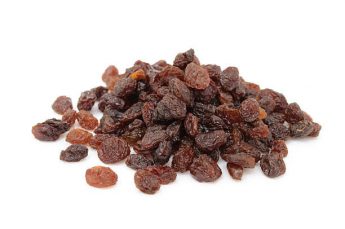Introduction
Quick Navigation
Most animals rely majorly on food for their growth and development as the nutrients necessary for this process are contained in foods. Different animal species have different foods, nutritional needs, and feeding patterns. Animals can be carnivorous, herbivorous, or omnivorous eaters, and this reflects in what they consume. It is also a well-known fact that larger animals eat more than smaller animals as their appetite can be proportional to their weight and sizes. Birds, in general, are very good eaters. Most bird species are omnivores, especially the small ones, usually referred to as backyard birds. These birds feed on both plants and animals, but most of them eat seeds, nuts, and fruits. Insects also serve as good sources of nutrients, but most wild birds prefer nuts, berries, and seeds.
See also; birds of wisconsin
It is important to note that even wild birds need to eat the right foods and diet combinations just as they are in forests and wildlands. This is because the right food combination supplies the necessary nutrients essential for survival and longevity of life. Seeds and nuts are also very important diets of backyard birds and birds in captivity as these plants can be easily fitted into bird feeders.
Wildbirds are also speculated to live longer while in their natural habitats as the number of fruit trees is in abundance making fruits always readily available. This availability makes it almost impossible for scarcity to occur even with the various bird species in the wild. Fruits that birds can safely feed on include berries, bananas, and raisins.
Check also; black and white birds
Most wild birds enjoy feeding on raisins, and these fruits are entirely safe for the consumption of birds. Garden birds also have raisins as favorite foods in their simple diet combination. Raisins are dried fruits that can be consumed raw or cooked. They should be consumed raw so as not to undermine their nutritional value as they easily lose nutrients. Not only are they good for birds, but they are also quite beneficial to most birds that consume them. They contain certain nutrients and minerals needed and are readily used by birds.
Most small and garden birds are usually satisfied with feeding on raisins as they derive several nutrients from them, and so see no need to search for other sources of nutrients.
See this; black and yellow birds
Raisins
Grapes undergo a process that transforms them into raisins which are produced in many regions of the world and are consumed by both humans and animals, birds especially. They come in different colors and varieties, and this depends on the kind of grapes used. There are several methods in which grapes are converted to raisins, and these methods produce very similar results. Raisins are widely available in several regions of the world as grape trees as cultivated globally in large numbers. Small birds enjoy feeding on raisins as they are sweet and tasty.
Birds and raisins
Garden, backyard, and wild birds seem to have a limited dietary combination as their meals alternate from nuts to seeds, raisins, and some berries. This is because their nutritional needs are usually met by these foods; therefore, they rarely have needs for other foods. Raisins particularly contain several nutrients highly beneficial to birds. Raisins can be found both in areas of human habitation and also in wild places as wild grapes which fall and dry up can be raisins for wild birds also. Raisins contain a high level of sugar and calories, making them a perfect choice for birds.
Check this out; blue footed booby
Benefits of raisins in birds
Although birds’ growth does not always reflect physically, their bodies still undergo certain changes when they feed well. Raisins are quite integral to most birds’ diets as they are quite healthy foods. Birds in general, are active animals that consume a lot of energy during flight and migration. The high natural sugar content in raisins makes them high energy suppliers. As most birds require enough energy, regular consumption of raisins is encouraged. They are also quick energy boosters and help in regulating body temperature in these flying creatures. Raw raisins are best given to birds as they perfectly meet their nutritional needs.
Raisins also contain tiny amounts of fat and protein just in the right amount needed by birds, and so consumption of these dried fruits increases the rate of development in most bird species. This development may look slow, but the change would later show. Dietary fiber, which is necessary for proper digestion, is also contained in raisins and so your pet birds would find them very helpful. Wildbirds that eat raisins have no difficulty flying as these fruits digest easily and prevent any form of discomfort.
See this; can birds eat almonds
Being a dried fruit, raisins can be stored, and this is a major lifesaver for birds during the winter season, which is characterized by extreme cold, snow, and a fall in temperature. Several wild birds save them during summer and spring and store them up in their nests and holes. These raisins last long in storage, and so birds can survive on them for as long as the winter season lasts as going in search of food can be very dangerous due to the cold. Birds can also obtain warmth and effectively stay warm by consuming these fruits as the energy they supply helps to maintain the bird’s heat.
Certain essential nutrients and vitamins are stored in raisins, making them an attraction to small birds. The presence of these nutrients and minerals helps keep birds in good health conditions, thus contributing significantly to extending their time on earth.
Check out; cardinal bird symbolism and spiritual meaning
Conclusion
Raisins are excellent for birds to consume, but it is important to regulate the intake, especially for pet birds, as too much consumption can lead to stomach problems. As for wild birds, they may not experience any effects from over-consuming this fruit as their digestive system would have adapted with time.

